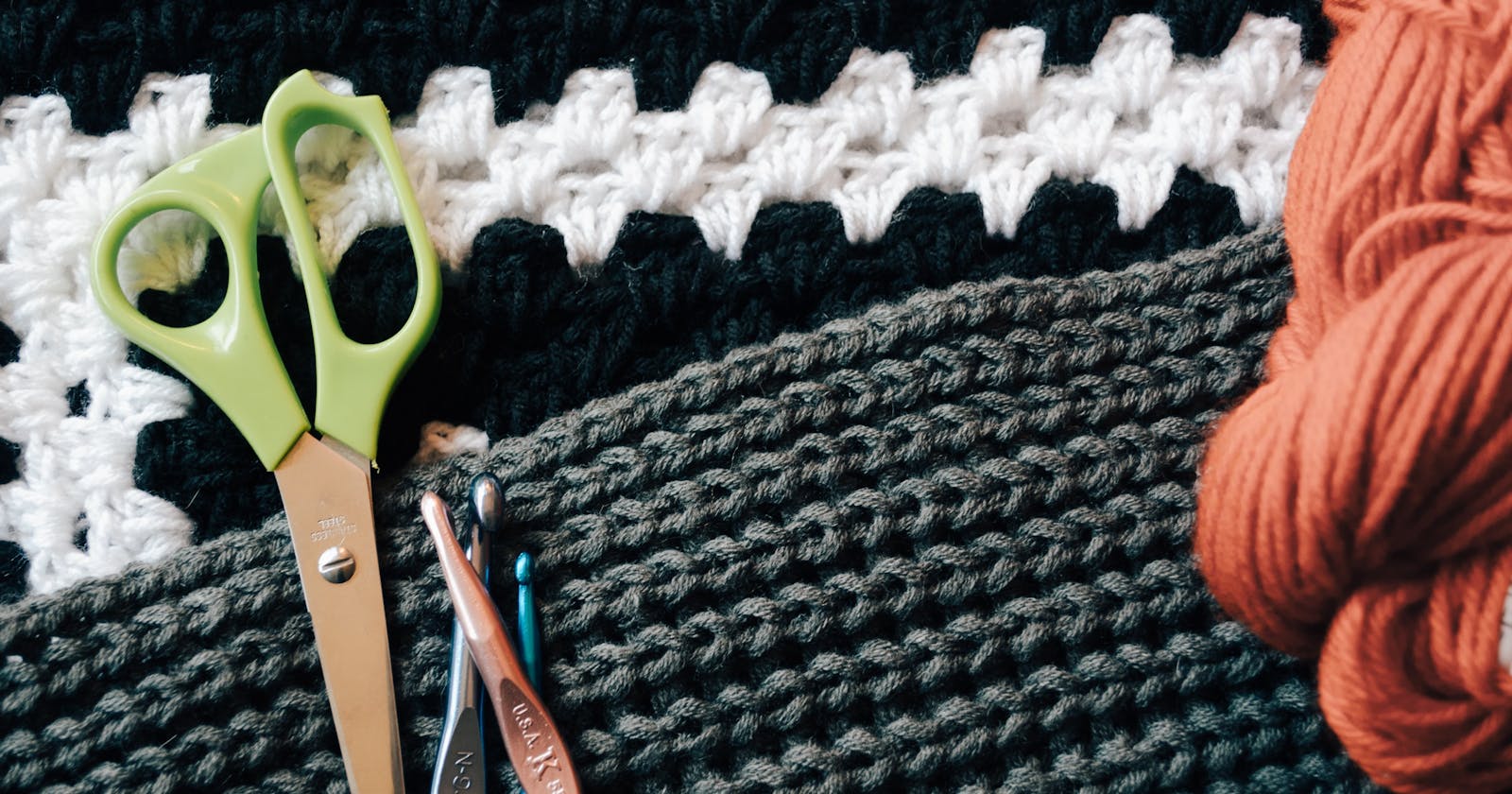At first glance, coding and crocheting appear to have little in common outside of both being words that start with the letter “C.” One is a process that allows us to build cutting-edge computer software, websites, games, and apps. The other is an allegedly old-fashioned craft, more often associated with grandmas in rocking chairs than anything high-tech.
But what if I told you that the two are more similar than you might think? Barbara Oakley, in her famed Learning How to Learn Coursera program, teaches us that the “chunks” of information we know from one concept can sometimes have surprising links to another idea we’re learning. In my case, I realized after finishing the first week of a software engineering course that crocheting and coding aren’t all that different when it comes to things like the language, the community, and the journey to a finished product.
Don’t believe me? Read on to see what I mean.
Coding and crocheting have mystifying lingo
When you look at code in a language you’re unfamiliar with, a lot of it seems like gibberish. You may not know right away what </div> or rgb() or JSON means, but once you become more acquainted with the syntax and terminology, the letters and symbols laid out in front of you start to make sense. With some study and practice, you can recognize which part of the document results in what output on a page.
Crocheting, like coding, has its own lexicon as well. Read any pattern on how to make a hat and you’ll see it’ll go something like “Ch 87. Ss in 1st ch to join. Ch 2. *[FPdc in next st, dc in next 2 sts]”—not so easy to decipher when you don’t know crochet lingo, but the function of each term becomes much clearer after learning some of the language.
Their communities are generous and supportive
Spend a bit of time on (the good side of) #techtwitter and you’ll see that there are tons of people in tech offering support to those who are new to coding or are trying to break into the field as engineers and developers. Many of these seasoned professionals volunteer their precious time to troubleshoot code, mentor juniors, and review portfolios. There are also endless free resources online for learning programming languages or building projects, shared openly by enthusiasts entirely out of generosity. I myself have enrolled in a full-stack web development training program for a total of $0.00 thanks to one very altruistic instructor, Leon Noel. This is all to say that plenty of folks who have a passion for coding also have a passion for giving, and often all they ask for in return is for you to pay it forward.
The same generosity can be seen in crocheting circles and the abundance of knowledge that crafters make available for anyone to access. Google “crochet basics” and you’ll find thousands of tutorials from experienced crocheters explaining everything there is to know about the art. There are also crafters who spend hours upon hours building, testing, and writing patterns that they then release for free, much like developers do with some of their code. In a way, crocheters have their own open-source databases of projects that they can enhance and customize to their needs.
You use similar methods for fixing mistakes
One of a crocheter’s worst nightmares is pausing to look at your work in progress only to realize that it’s a little wonky. Fixing a project that’s gone awry involves closely examining your stitches and pinpointing the row(s) in which you may have skipped a stitch, forgotten to change colors, or used the incorrect number of turning chains. Once you figure out where things went wrong, then you can get back on track to finishing your scarf, sweater, or what have you.
You don’t always get it right the first time when coding, either (in fact, I’d be really impressed—maybe even slightly suspicious—if you did). Just like with crochet, debugging your code calls for carefully inspecting what you’ve worked on and repairing existing errors. Gradually, you learn how to become patient and attentive to detail whether you’re working in VS Code or wielding a crochet hook.
You can create beautiful and functional things with just your hands and minimal tools
Give a crafter some yarn, a crochet hook, and time, and you’ll be amazed at what they can make: blankets, reusable market bags, board shorts, and even amigurumi. In the same vein, programmers can build a limitless array of products with only a computer, a text editor, and probably some caffeine. These two disciplines use minimal tools to construct something beautiful, useful, or often both. At the end of the day, coding and crocheting are different but analogous ways to be creative using your hands—just remember to be careful, because you can get carpal tunnel syndrome doing either activity!
You learn something new every day
Whether you’re a beginner at crochet or a crafter with 10 years of fiber art under your belt, there’s always a new technique to practice or a fresh project to undertake. Being a good crafter means you never stop working to improve your skill or expand your knowledge. The same can be said for coding: to become a great coder is to sign up to be a lifelong student. Engineers, developers, and programmers are constantly picking up new languages, frameworks, and technologies to keep themselves current in their fields. While this may seem daunting, it's a big part of what keeps the work unique and exciting.
Have I convinced you that code and crochet are not as different as you may have thought? Did this make you think about unexpected links between your interests? I'd love to hear them!
